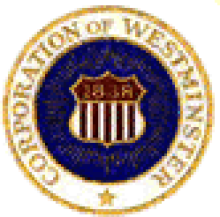Westminster Muni Network Expanding
Marking another big step forward, the mayor and Common Council of Westminster, Maryland (pop. 18,000) have hired a telecommunications, utility and government contracting firm to continue building the first two phases of the Westminster Fiber Network (WFN).
City Hires SMC
Westminster expects to complete this construction in 2017, providing Gigabit per second (Gbps) connectivity to an additional 2,700 homes and businesses in the western part of the community, according to a city news release. Cost of this phase is undetermined $21 million, Westminster marketing consultant Jason Stambaugh told us; the city will issue general obligation bonds to fund the entire cost of the network the expansion.
One year after Westminster celebrated lighting its municipal fiber network, the city hired SMC, Inc. to construct the expansion. Westminster is partnering with Toronto-based Ting to provide retail services via the Fiber-to-the-Home (FTTH) network.
“This expansion of the WFN is an important milestone and demonstrates the City’s continued commitment to revolutionize Internet access, bring local jobs, and drive innovation that will enable the community to thrive.”
Westminster began building its municipal fiber network in October, 2014, and entered into a public-private partnership with Ting in February, 2015. The city owns the infrastructure and Ting leases fiber to bring Internet service to businesses and residents. Westminster began its municipal fiber network, spending about $1.8 million to get the project started in a residential retirement community and an industrial park.
Bonds Back Fiber Network
Because of high demand, the City Council voted to expand the municipal fiber project, approving a $21 million general obligation bond agreement with SunTrust Bank.


